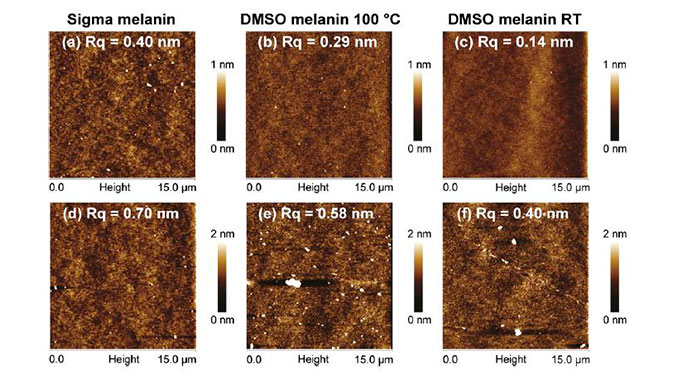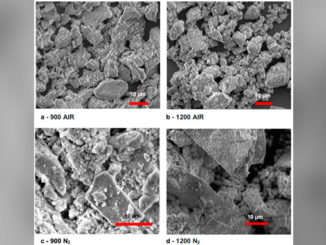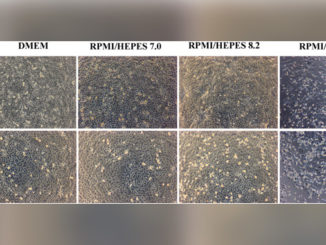
Novel insights on the physicochemical properties of eumelanins and their DMSO derivatives
Abstract: The biopigment eumelanin, ubiquitous in flora and fauna, is made up of chemically heterogeneous macromolecules based on the 5,6-dihydroxyindole and 5,6-dihydroxyindole-2-carboxylic acid building blocks. The exciting possibility of designing eumelanin-based technologies for bioelectronics and sustainable electronics has to be properly assessed by gaining insights on the charge transfer and charge carrier transport in the pigment, preferably in film form, easily amenable to devices. In this work, we report a study on the electrochemical behaviour of films of eumelanin and its derivatives synthesized in dimethyl sulfoxide (DMSO eumelanins) in different aqueous electrolytes, with different chemical compositions and pH. DMSO eumelanins feature an improved solubility in the solvent DMSO, of relevance for processing purposes. The voltammetric currents are higher at relatively low pH (5.5), as expected considering the well-established proton transport properties of the biopigment. Raman spectroscopy and atomic force microscopy performed on eumelanin films were combined with thermogravimetry with the aim of advancing knowledge on the molecular and supramolecular features of synthetic commercially available eumelanin, DMSO eumelanins as well as natural eumelanin (Sepia melanin). The results collected permit unprecedented insights on the physicochemical properties of eumelanin. (c) 2016 Society of Chemical Industry
Author(s): Albano, LGS; Di Mauro, E; Kumar, P; Cicoira, F; Graeff, CFO; Santato, C
POLYMER INTERNATIONAL
Volume: 65 Pages: 1315-1322 Published: NOV 2016
PDF: Novel insights on the physicochemical properties of eumelanins and their DMSO derivatives
DOI: 10.1002/pi.5167




